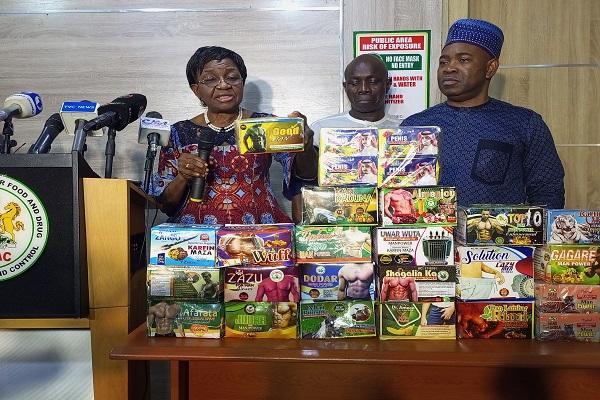The federal government says it shut down illegal fertiliser production outfits in Kano state as part of efforts to ensure food security and quality production of farm inputs.
This was disclosed in a statement by Anthonia Eremah, assistant chief information officer of the ministry of agriculture and rural development, on Friday in Abuja.
Eremah said the move, which took place on August 17 and 18, was in line with the government’s commitment to quality production of fertilisers and farm inputs and also geared toward achieving food and nutrition security.
She said a team from the ministry, led by Kwaido Sanni, director, farm input support services department (FISSD), with members of the police and department of state security (DSS) carried out the sealing of the illegal outfits in the state.
Advertisement
Eremeh added that various local government areas were visited, and this was to fulfill the national fertiliser quality control regulations of 2020, section 43, sub-section 1 of the constitution.
“The constitution empowers FISSD to move against adulteration and sharp practices in the fertiliser sub-sector,” Eremeh said.
Also speaking, Sanni said the fertiliser control act would ensure that any individual doing the business registers with the FISSD as well as possess the required facilities to operate in the sector.
Advertisement
“One reason why most of the fertiliser companies did not want to carry out the process was because they knew that they were not qualified,” he said.
“That is why their companies were clamped down on in the state.”
Sanni, therefore, warned those engaged in illegal businesses to stop or face the wrath of the law.
On his part, Sunday Oke, fertiliser quality control, FISSD, during the inspection, observed the prevalence of adulterated and fake fertilisers in the state.
Advertisement
Oke said samples of the fertiliser would be collected and taken to Abuja for laboratory checks to confirm compliance with the guaranteed analysis.
He added that an aspect of the exercise was targeted at cases of diversion of government-procured raw materials.
According to him, there is a provision in the act that specifies that diversion of fertiliser was an offence.
“This is the reason we went to the market and saw cases of government presidential fertiliser initiative (PFI) raw materials being sold in the open market which are not supposed to be sold,” he said.
Advertisement
Add a comment






